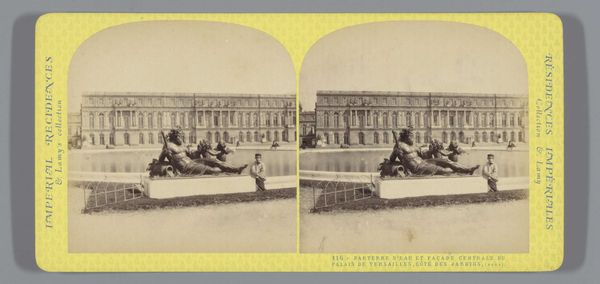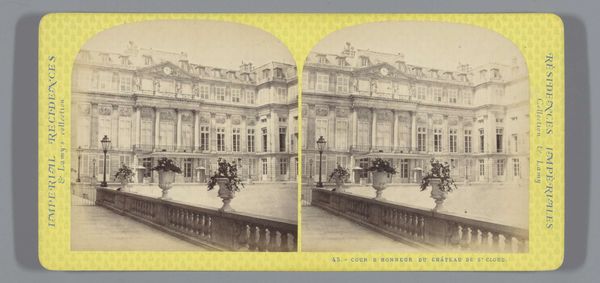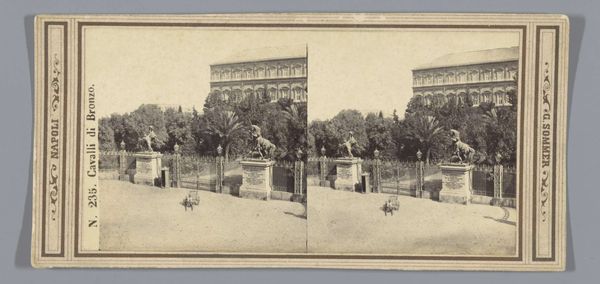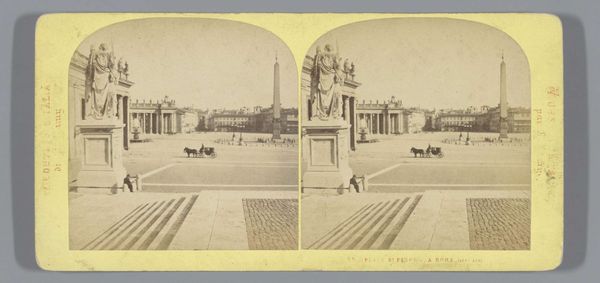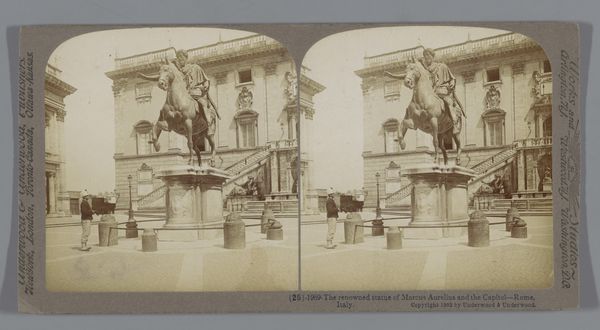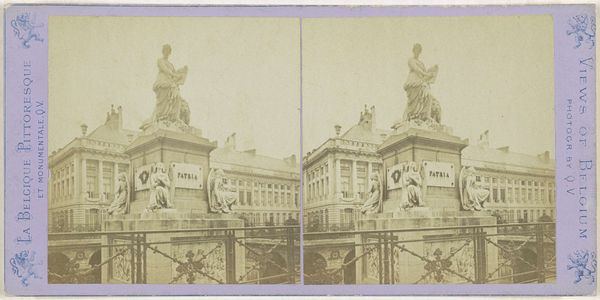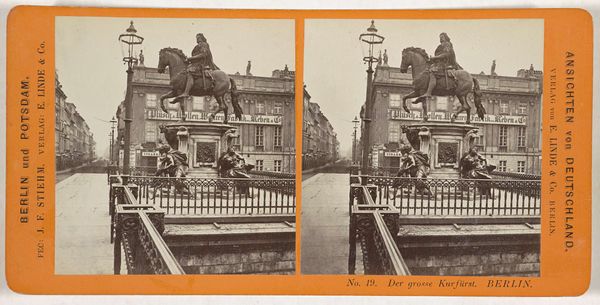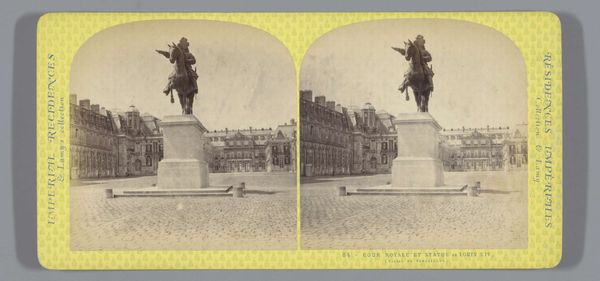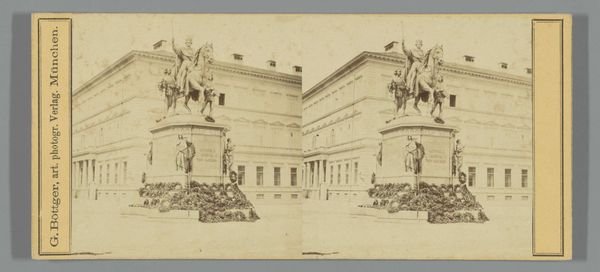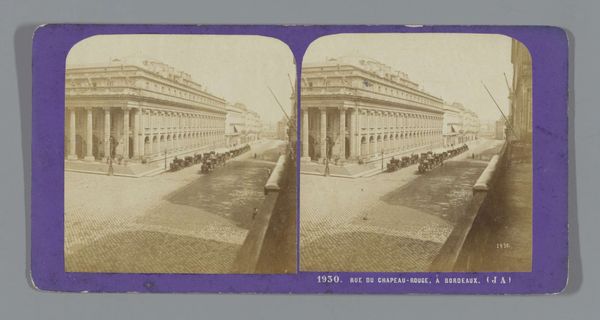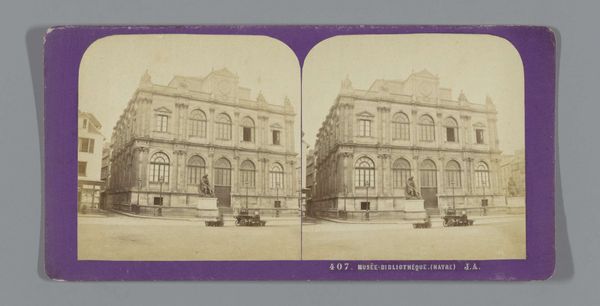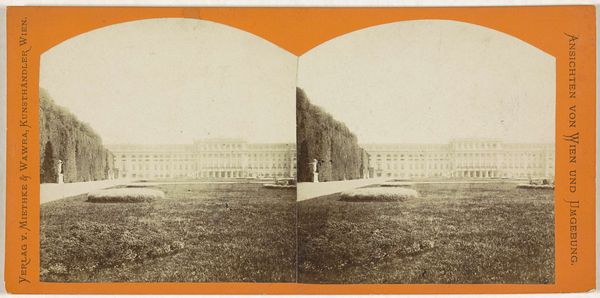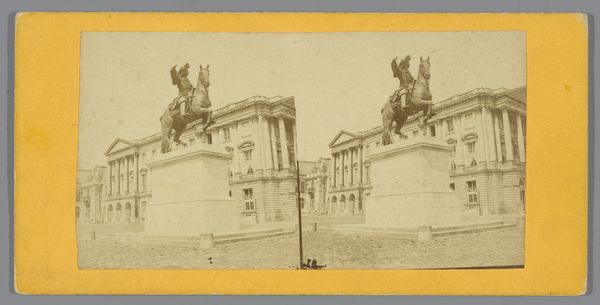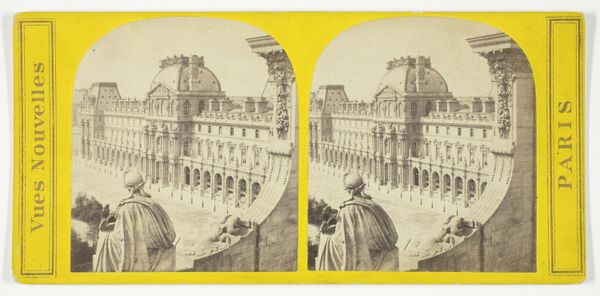
Dimensions: height 85 mm, width 170 mm
Copyright: Rijks Museum: Open Domain
This stereoscopic photograph, taken by Ernest Eléonor Pierre Lamy, captures the Palace of Versailles, likely in the latter half of the 19th century. Stereoscopic photography was a popular form of entertainment at that time, offering a sense of depth and realism to viewers. The image creates meaning through a visual code of power, wealth, and authority. Versailles, originally built by Louis XIII, was expanded by Louis XIV into a symbol of French absolutism. Lamy's photograph presents the palace as an enduring monument, a carefully constructed facade designed to impress and intimidate. The inclusion of the statue suggests a classical ideal of beauty and order, reinforcing the palace's image as a center of culture and refinement. Consider how the photograph comments on the social structures of its time. Does it critique the inequalities of the past, or does it celebrate a bygone era of royal grandeur? Understanding this image requires archival research into photographic history, the history of Versailles, and the political context of 19th-century France.
Comments
No comments
Be the first to comment and join the conversation on the ultimate creative platform.
